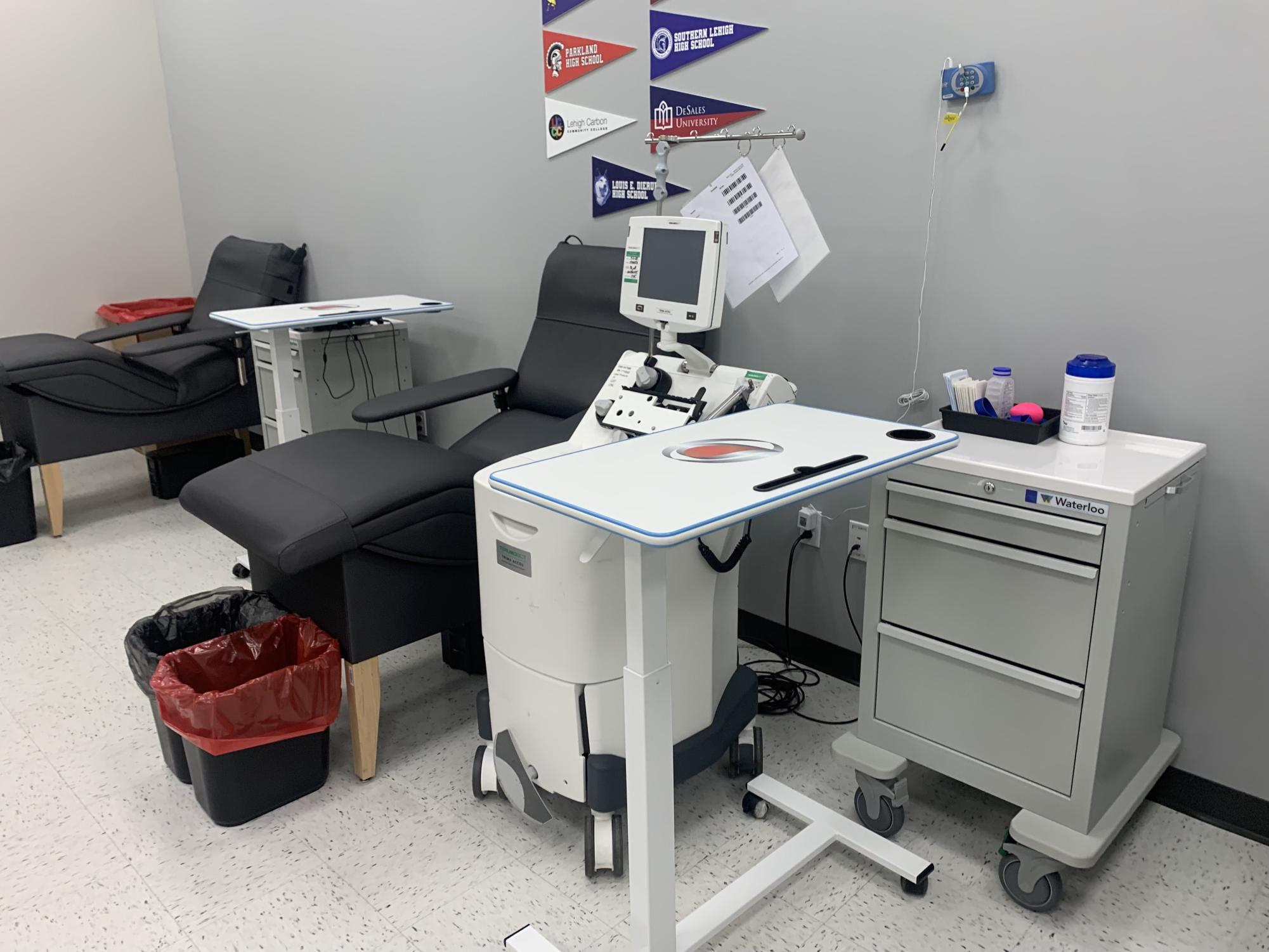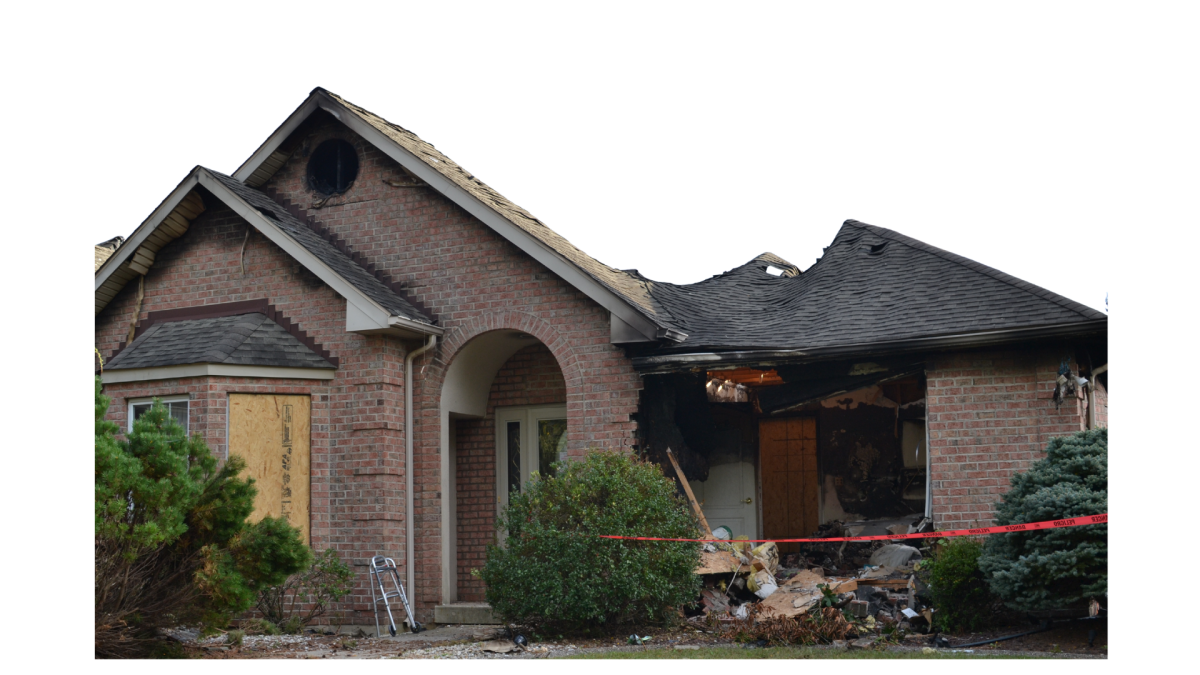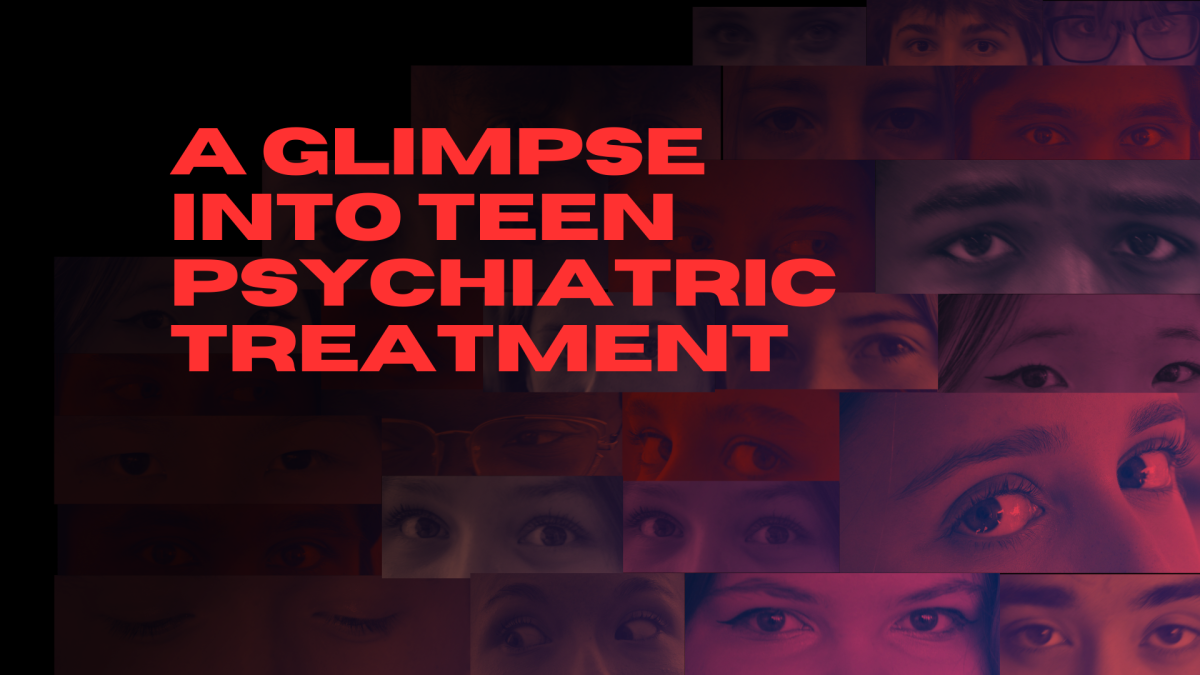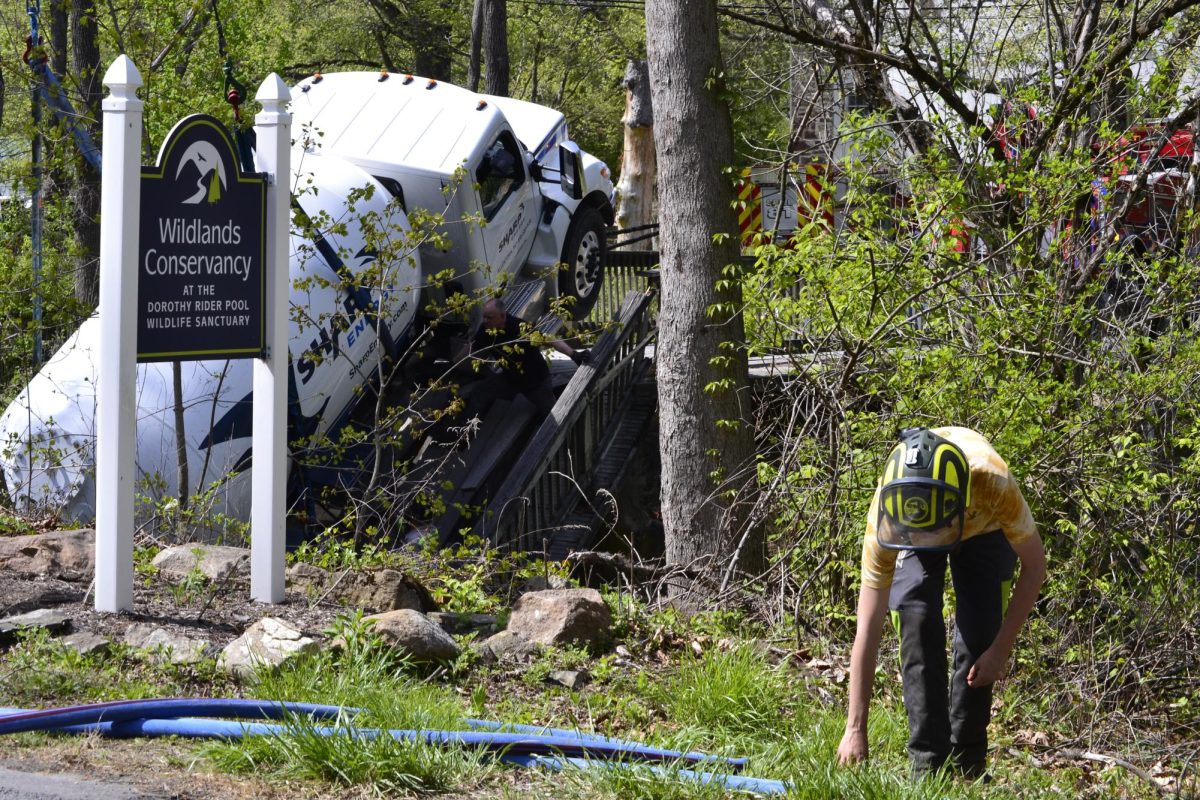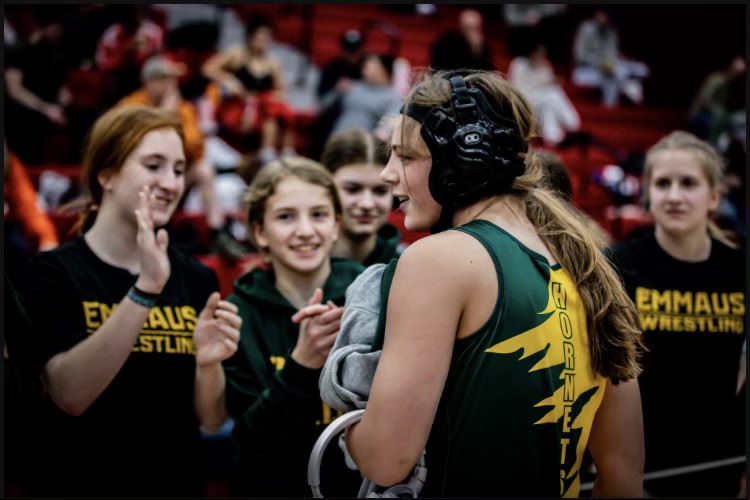Every two seconds, someone needs a blood or platelet transfusion in the United States, according to the American Red Cross Blood Services. As stated by the Blood Bank of Alaska, 4.5 million people need a blood transfusion in a single year.
Patients may be in desperate need of a blood transfusion, but hospitals do not always have the blood to give. The American Red Cross Club at Emmaus High School is striving to combat this shortage by working in conjunction with the Mill er-Keystone Blood Center at Cedar Crest to host a blood drive for students from Dec. 8 to Dec. 28.
Emmaus High School Spanish teacher William Montepeque is the advisor of the Red Cross Club. He, alongside numerous students, work to organize fundraisers and events to help people around the world. Though the club is not formally linked to the American Red Cross Association, they share many of the same goals and values.
The Miller-Keystone Blood Center contacted the club with the plan for the blood drive as a part of their (“Adopt a Day” ) program. The idea is to raise awareness for blood donation and similar causes by having businesses, schools, organizations, or clubs adopt days and times to host a blood drive, fundraiser, or similar event for their group. Participants include employees, students and faculty, and members of the organization or club. Activities like these present opportunities for students to learn about the world around them providing valuable experiences and helping to develop strong character traits.
“There are…skills that you can build on and learn about, [like] collaboration, and taking time to be working,” Montepeque said. “I think its really about caring [for others].”
Though the blood drive is open to students, there are some restrictions on who can donate. According to the Central Pennsylvania Blood Bank, participants must be 16 years of age or older and must have a signed parent consent form. They also must be at least 120 pounds and in good health. Other restrictions include people who have unmedicated asthma, have had a piercing or tattoo in the last six months, or have traveled outside the country recently, are unable to donate. The time before one can donate after travel depends on the location that they came from.
During donation, only one pint of blood is drawn as most individuals have roughly ten pints of blood in their body. Different kinds of blood can be drawn, including whole blood, platelets, plasma, and red blood cells — all of which are used to help people in need. Although there are few risks associated with donating blood, especially for teenagers and young adults, some common side effects include light bruising on the site and possible light-headedness. As long as the donor eats well a few hours afterward and drinks plenty of water over the next few days, they should be just fine.
One of the co-presidents of the American Red Cross Club, senior Priya Mancheril, has loved being a part of the club for the past few years and organizing similar events.
“When we planned the blood drive, we wanted to be able to incorporate [it] into…the experience of being part of the student body.” Mancheril said.
To incentivize students to donate, the Red Cross Club created small goody bags to give students who donated. To redeem their prizes, students will go down to room 16 with proof of their blood donation. The Red Cross Club hopes to motivate students to get active in their community and take action to make a difference in the world around them.
“You can make an impact in the most simple ways as a student, whether it’s talking about a fund raiser that’s going on, or donating money, or donating blood, there’s someone outside of Emmaus High School that is going to benefit,” Mancheril said.
Both Montepeque and Mancheril hope to continue running blood drives and fundraisers into the future.
“There’s a need and… [ways] we can help people,” Montepeque said.

